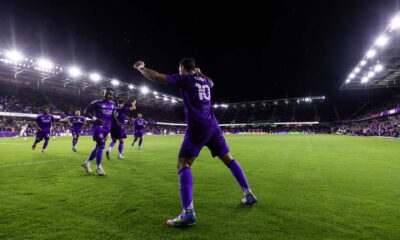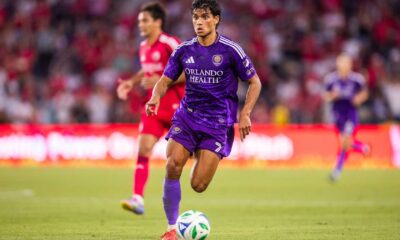Opinion
Orlando City Needs More from Martin Ojeda in 2024
What does Martin Ojeda need to accomplish in his second season with the Lions?
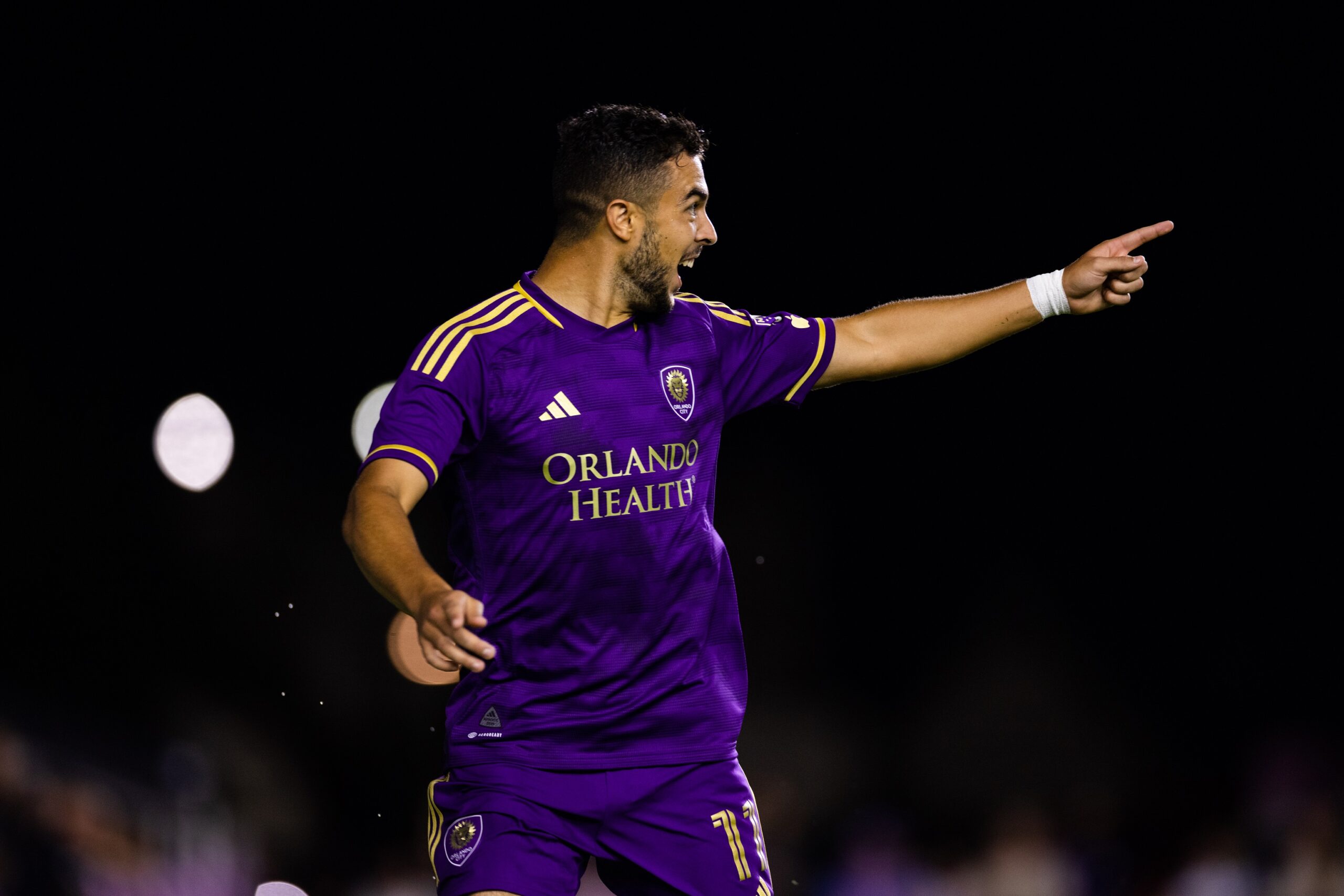
Martin Ojeda was signed by Orlando City a little over one year ago, back on Jan. 9 2023 from Argentina top flight team Godoy Cruz as a Designated Player. Breaking down Ojeda’s impact as a Lion throughout his first season in purple is anything but simple. Designated Players in Major League Soccer’s bizarre salary cap and contract ecosystem are — as a general rule of thumb — supposed to be instant difference makers who elevate a team whenever they are on the field.
The problem for Ojeda, at least during the majority of 2023, was simply getting into the starting lineup in the first place.
Throughout the 2023 season, Ojeda logged 1,751 minutes of game time across 34 matches and was responsible for 16 goal-scoring contributions, with six goals and 10 assists. A respectable season in its own right still felt to many as if Ojeda had underperformed due to the fact that he was not a regular starter in the lineup.
Fellow DP Facundo Torres was responsible for 18 goal-scoring contributions while having logged 626 more minutes of game time. There is certainly a learning curve when adjusting to the pace and physicality of MLS matches, the frequency of matches and travel associated with a full season of fixtures, and the culture in a new country. These growing pains were magnified for Ojeda, who also never seemed to have a true role established in the squad. Nonetheless, Ojeda still managed to tie former captain Maurico Pereyra, with a team-best 0.51 assists per 90 minutes while logging 376 fewer minutes than Pereyra did.
With all that being said, lets look at the two avenues where Ojeda can buck the narrative that he did not deserve a Designated Player slot and where he can continue to grow as a Lion in 2024.
Command Starting Caliber Minutes
Ojeda now benefits from an entire season of experience with the Orlando City coaching staff, and almost the entire complement of attacking players that he suited up alongside during his first year with the team has returned for 2024. The learning curve at this point should be in the rearview mirror and expectations should be clearly identified for Ojeda at this point.
The first step in proving that he deserves the DP slot is by commanding a role in the starting lineup, match in and match out. The reality of Ojeda’s situation is that perception plays a major role in whether or not his time spent with the club will be deemed a success or not, and having a DP coming off the bench simply gives off the wrong perception of the quality of his play.
When his statistics are truly broken down from year one, Ojeda proved to be one of the brightest points on the team scoresheet, despite the perception that he was destined to be a bench player. To consider year two a success for Ojeda, he simply needs to do everything in his power to be in the starting 11 each week, and if he is able to do that, then his overall contributions seem destined only to grow from his first season with the squad.
Increase the Goal Output
Assists might be the least sexy of statistics on the offensive side of the ball, outside of expected goals which, I am sorry is simply a made up stat that matters very, very little. Ojeda had great assist numbers in year one and it could easily be argued that if he would have logged the same amount of minutes as Torres or Pereyra that he would have led the team in overall assists. The real eye opener for fans and the media alike, however, is putting the ball in the back of the net. Ojeda needs to wind up with a double digit statistic of goals scored in 2024 to prove to the naysayers that he belongs as a DP.
When he has been on the field, Ojeda has proven that he is not afraid to pull the trigger from anywhere or at any time, and throughout the first few months of 2023, Ojeda actually led MLS in shots taken. Shots on target…well maybe not so much, but the desire to send the ball towards goal can not be discounted, and now all Ojeda needs to do is develop a maturity of his shot attempts and operate with a clinical nature to back up his gunslinger attitude. After all, if Ojeda can put this type of shot in the back of the net, then scoring from within the box should be no problem at all!
Overall, I suspect that Ojeda will take a major leap in year two with Orlando City and that by the end of the season, he and Torres will be looked back upon as a true dynamic duo throughout MLS circles. Let us know in the comments below what you feel Ojeda needs to do during his second year with the club to have his season be considered a resounding success, and as always vamos Orlando!
Opinion
Orlando City Has Been Better than Expected Halfway Through the Season
While there was plenty to worry about at the start of the season, Orlando has had a good first half of 2025.
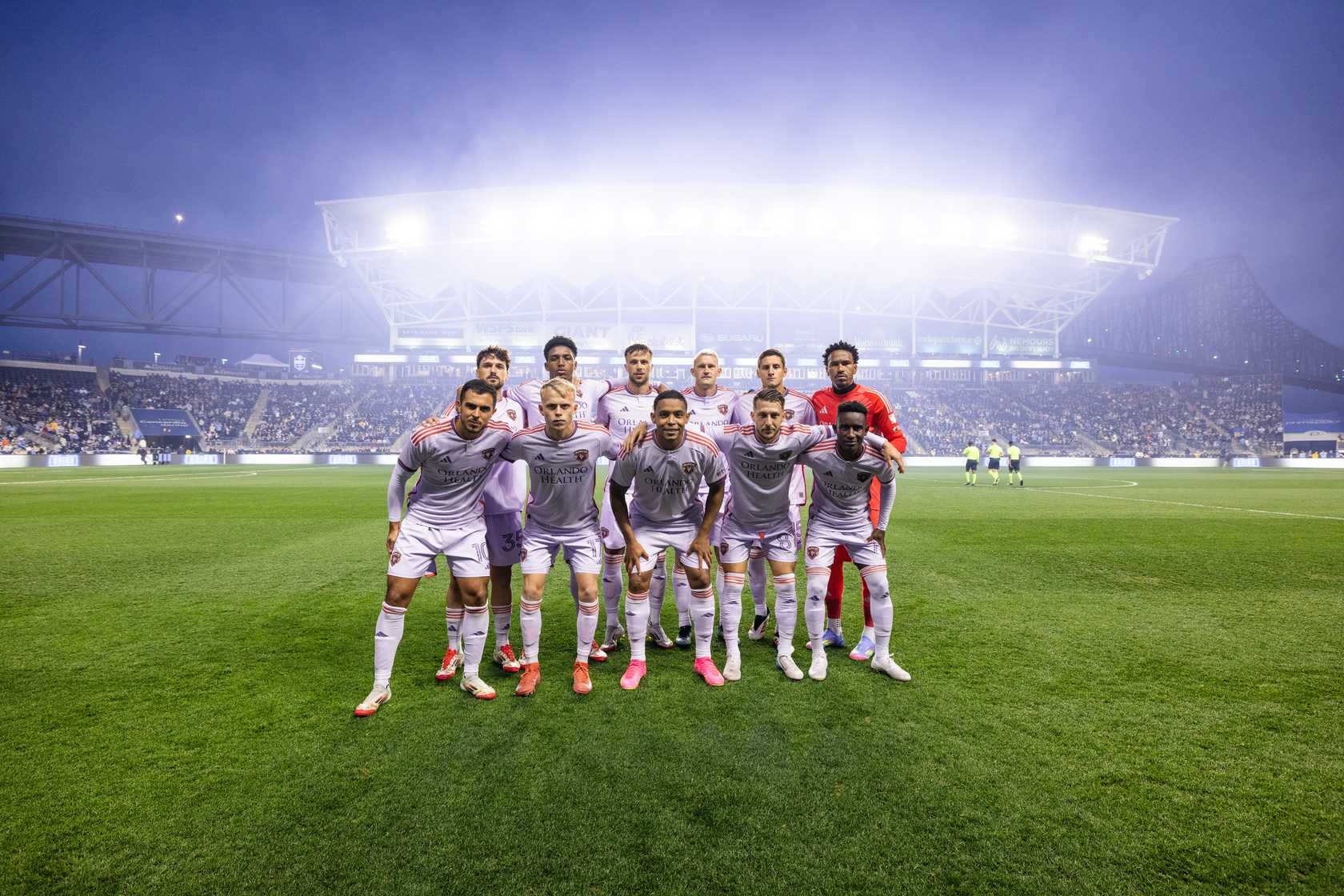
With 18 matches in the books, we’ve moved just past the halfway point of the 2025 Major League Soccer season, and based off my feelings before Orlando City played its opening game of the season, the Lions have performed above expectations so far. There were plenty of valid reasons to be concerned heading into the year. Orlando had sold its all-time leading goal scorer, and there were questions about whether he’d been adequately replaced. There were worries about depth at multiple positions, and the defense was coming off an uncharacteristically poor year. Here we are though, with the Lions sitting fifth in the Eastern Conference, just three points out of second place and seven points out of first. So how did we get to this point?
For one thing, Marco Pasalic has been much better than I (and I think a lot of other people) expected him to be. The Croatian has six goals and four assists across 18 matches, and is second on the team in both categories. He scored 10 goals in 49 appearances in the Croatian first division before coming to Orlando and was extremely one-footed, which was enough evidence to sow real doubt about whether he could adequately replace the impact of Facundo Torres.
So far, it’s mostly been so good. His direct style of play is a good complement to the styles of Martin Ojeda and Luis Muriel, and he’s largely hit the ground running in a league that can be difficult to adapt to. It hasn’t been perfect, as he’s still very one-footed, and can sometimes disappear if he’s stringently man marked, but on the whole there’s been much more good than bad.
Speaking of Ojeda and Muriel, they’ve also had strong years. Ojeda in particular has continued his great second half of the 2024 season and has nine goals and five assists in 18 games to show for it. He looks fast, confident, and decisive and is a far cry from the player who struggled frequently during his first year as a Lion. Muriel has cooled off a little after a scorching start to 2025, but he still has six goals and three assists in 18 matches. He looks vastly improved from last year, when he looked a little off the pace of play and quickly lost the starting striker role. He still has a tendency to not be as selfish as he needs to be in front of goal, but he’s been much better than 2024.
I mentioned depth being a big concern, and not just at one position. At the beginning of the season Orlando City was, and arguably still is, thin at striker, center back, defensive midfield, and fullback. Duncan McGuire was injured to start the year and is now injured again, leaving Orlando with two true strikers in Muriel and Ramiro Enrique. There was no true backup left back, only one reliable backup center back, and Dagur Dan Thorhallsson starting at right back meant that defensive midfield depth consisted of rookie Joran Gerbet and the Swiss army knife that is Kyle Smith.
Things have mostly worked out though. David Brekalo has supplanted Rafael Santos, meaning the Brazilian is now a proven backup option at the position, and Smith has filled in there as well. That means that in games in which Rodrigo Schlegel or Robin Jansson are unavailable, Brekalo fills in at center back, Santos starts at left back, and Smith is the backup for both positions, so it isn’t a flawless system. Gerbet has been playing better and better and got some valuable minutes when Eduard Atuesta and Cesar Araujo were unavailable. His emergence has been a crucial piece of the puzzle this year. So too has the rise of Alex Freeman, as his locking down the right back role has allowed Thorhallsson to fill in at defensive midfield, attacking midfield, and right back. The situation isn’t perfect, as a couple untimely injuries to the wrong guys would leave the Lions looking pretty threadbare, but so far it’s just about worked.
Another big concern was the defense. The Lions conceded 50 goals in the regular season last year, which was tied for the second-most of any Eastern Conference playoff team and fourth-most of any playoff team. With no defensive signings and the aforementioned depth concerns, there were plenty of reasons to worry about Orlando’s ability to keep the ball out of the back of the net.
Things have looked much better in 2025, though. The 22 goals OCSC has conceded are the fifth-fewest in the league, and Pedro Gallese’s eight clean sheets are tied for most in the league. Aside from a few egregious defensive performances against the Philadelphia Union, Atlanta United, and the Chicago Fire, things have mostly been tidy at the back, and when they haven’t been, El Pulpo has been around to pick up the slack. Again, things haven’t been perfect, as there have been moments where individual and collective errors have hurt the team, but it’s been better.
I thought the Lions would struggle this year. Going into the start of the season, we were talking about a team that lost Torres, arguably didn’t do enough to strengthen the team across the board, was facing depth issues, and was dealing with a leaky defense — all while pretty much every other contender in the East got stronger on paper. Instead, OCSC tied a club-best unbeaten streak and is just three points out of second place.
That being said, the East is so tight that Orlando is only five points above the playoff line, and injuries to the wrong guys could easily topple the fragile ecosystem that is the depth chart, but so far things are going better than I thought they would be. There are still a lot of matches to play, but this isn’t a bad position to be in at the halfway mark.
Opinion
Orlando City Must Learn from May’s Mistakes
The Lions can learn some valuable lessons from the three losses they suffered in May.
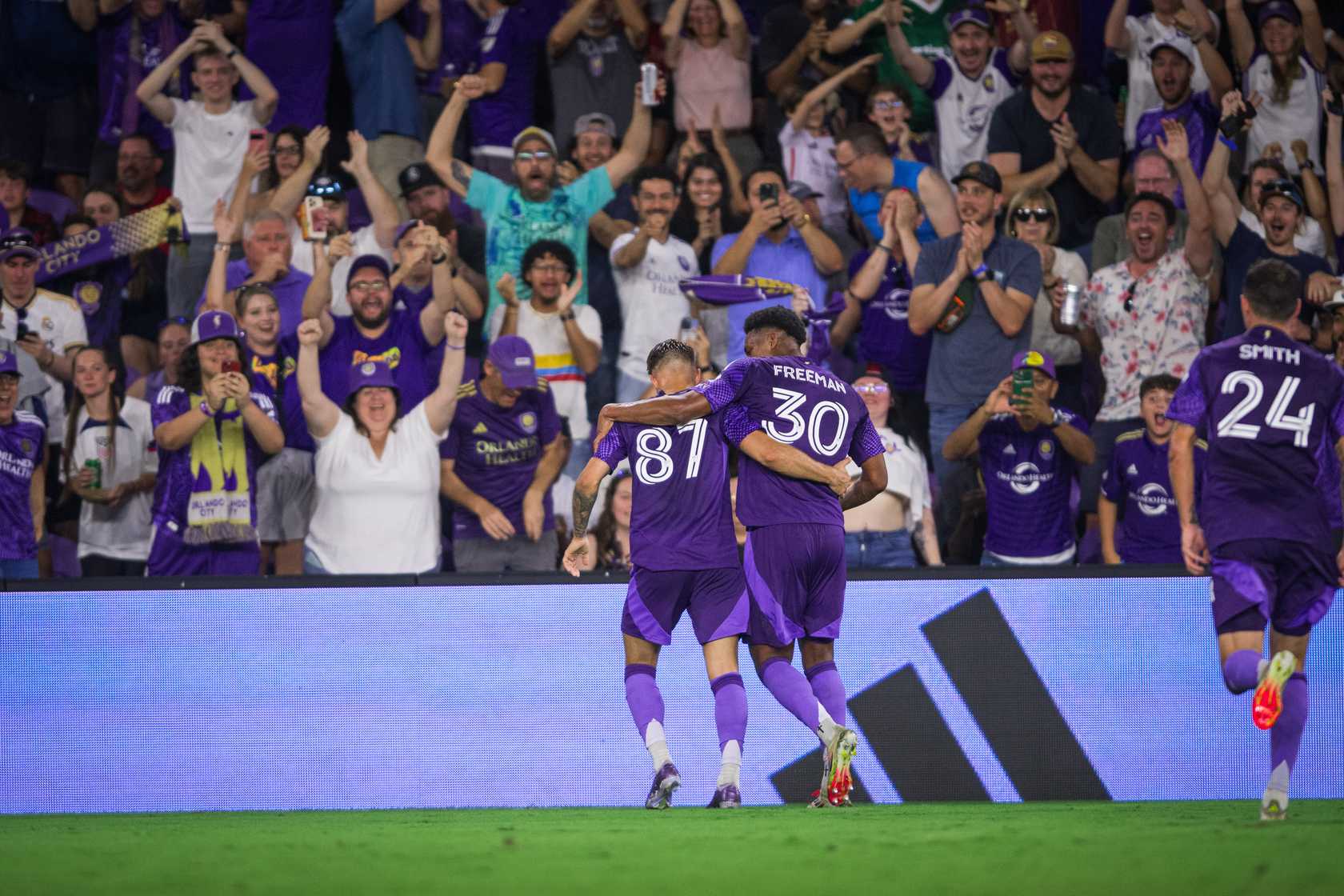
Orlando City hadn’t quite achieved juggernaut status as the Major League Soccer season turned from April to May, but a 12-match unbeaten run in the league is nothing to sniff at, despite there being a healthy number of draws interspersed with the victories. Things turned sour as May drew to a close though, as the Lions lost three of their final four matches of the month and entered a two-week break with a whimper rather than a roar.
Losing is never fun, but in this case those three defeats don’t need to be entirely negative experiences, and there are plenty of lessons to be learned from those three bitter losses that will hold Orlando in good stead if it can implement the proper solutions.
More Squad Rotation
One of the biggest factors in Orlando’s rough finish to May was a lack of squad rotation. Oscar Pareja has always been a coach that likes to find his first-choice XI and stick to it almost religiously. He doesn’t normally tweak his lineups or tactics according to whatever opponent is on the slate, and very much values consistency. In periods of fixture congestion, that tendency can be to Orlando’s detriment, and that was very much the case against both Nashville SC and the Chicago Fire.
After beating Inter Miami 3-0 in an emotional rivalry match on May 18, Pareja made just one change for a U.S. Open Cup match against Nashville SC three days later. Ramiro Enrique slotted in for Luis Muriel up top, but every single other starter from the Miami game also got the nod midweek. With Nashville deploying a heavily rotated lineup mostly filled with backups, the gamble was a simple one: hope that OCSC’s A-team can open up a big first-half lead against Nashville’s B-squad before bringing mass changes in the second half to get guys some rest. Hindsight is, of course, 20/20, but the strategy backfired badly as the Lions lost 3-2. Orlando started well with Marco Pasalic’s 17th-minute strike, but the team faded badly afterwards and gave up a couple of very uncharacteristic goals to lose the game. Lapses in concentration and tired defending cost OCSC the game, and that isn’t something we can normally say about this team.
Then, after losing to Atlanta United 3-2 on May 28 due in no small part to Cesar Araujo’s red card, Pareja made two changes for a match against the Chicago Fire on May 31, with Muriel coming in for Enrique, and the other change being a forced one, as Eduard Atuesta replaced the suspended Araujo. Those starters looked noticeably gassed during the resulting 3-1 loss, and the fatigue manifested itself by players missing chances that would normally be converted or in sloppy, mistake-ridden defending.
May was a packed month with a whopping nine matches in 31 days, and most months won’t be that busy. August is set to be the busiest remaining period of the year with six games in 31 days, although that number could rise higher if the Lions make a run in Leagues Cup. The bottom line is that guys are going to need more rest as the season goes on. If the coaching staff doesn’t trust some of the guys currently available as backups, then they need to dip into the transfer market in one way or another and get some players that they do trust, because if the starting XI gets run ragged during busy periods it’s going to cost Orlando, plain and simple.
Cool Heads Usually Prevail
Orlando City has received three red cards on the season, which is tied for the second-most in the league. Unsurprisingly, the Lions are winless in games in which they’ve had a man sent off, with draws against the New York Red Bulls and CF Montreal and a loss to Atlanta United. The results against the Red Bulls and Atlanta were particularly difficult to swallow, as before going down to 10 men, Orlando had looked on track to get three points in each game.
Araujo’s red card against Atlanta was especially frustrating, as he allowed Mateusz Klich to get under his skin, grabbed him by the throat, and reduced his team to 10 men when OCSC was nursing a 2-1 lead on the road. It was completely unnecessary and was also the sort of thing that Orlando had looked to put in the rearview mirror after keeping its collective composure and not picking up any bookings in the 3-0 road win against Miami, while the Herons picked up four and looked noticeably rattled in the process.
It should go without saying, but the Lions can’t afford to get key players sent off. Six extra points could make a big difference in the standings at the end of the year, and that number could rise even higher if OCSC can’t put its disciplinary issues to rest once and for all.
Focus for the Full 90
There were moments in each of Orlando’s three May losses that the team committed bad defensive lapses or mistakes. Whether it was not playing to the whistle on Nashville’s third goal, Atuesta’s bad turnover against Atlanta, or the Lions collectively allowing Chicago to stroll through midfield to score a third goal, there were plenty of examples of bad breakdowns that were largely absent during the team’s unbeaten run. Can some of that be attributed to tired minds and tired legs? Maybe so — it’s a lot harder to play crisp and focused when the minutes have piled up. Regardless, its something that can’t continue to happen going forward. It’s possible that having more rotation in the squad will help that a lot, but it’s also on the players on the field to stay as mentally sharp as they can when they’re out on the pitch.
Clearly, a recurring theme here is that fresh legs and balanced squad rotation are top of my list of things I want to see change. I’m all for riding the hot hands, but tired legs make for tired minds, and tired minds make mistakes and are easier to rile up. Whether reinforcements come from the bench or an outside source, using more bodies will go a long way towards solving some of the issues that we saw in May’s three losses. All we can do now is wait and see what happens once the team returns from its break. Vamos Orlando!
Opinion
Predicting Orlando City’s June Results
It’s time to take a glimpse into the future and predict how Orlando City will fare during the month of June.
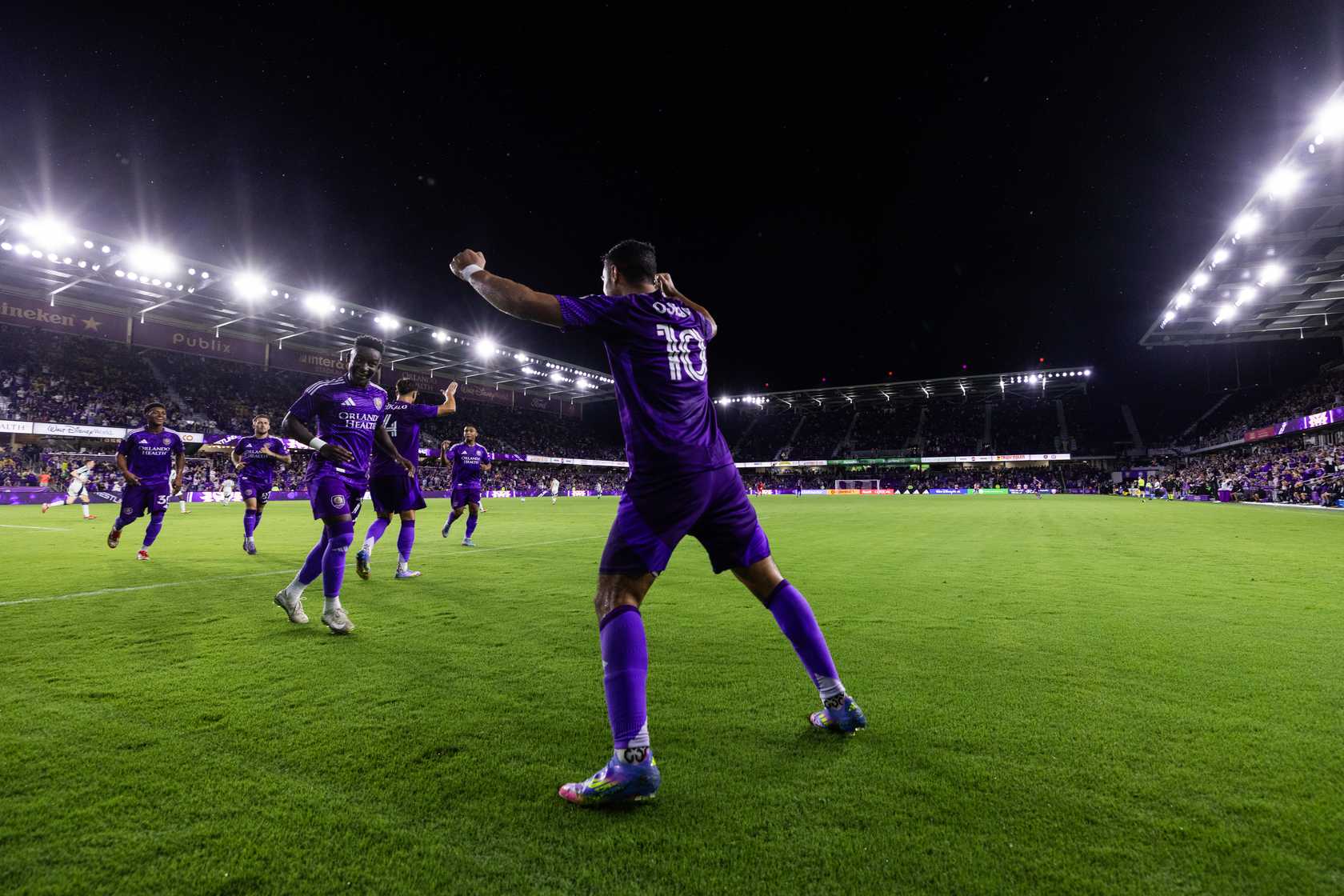
We’re almost to the end of what’s been an extremely packed month of May for Orlando City. After the conclusion of Saturday’s match against the Chicago Fire, the Lions will have played nine matches in the span of 28 days. OCSC has basically played a match every three days, which is an absurd pace. Other than two recent blemishes, Orlando has mostly handled it exceedingly well though, and June presents a much lighter schedule for our brave heroes.
The Lions play just three games next month and will have two weeks off between Saturday’s match against the Fire and their next game. Without any further ado, I will now attempt to peer into the crystal ball and predict the results of Orlando’s three games in June.
Saturday, June 14 — at Colorado Rapids
Orlando will return to action after a two-week layoff by hopping on the purple plane and flying west to take on Colorado. The Rapids are currently eighth in a crowded Western conference table with 22 points, and they are 10 points off the Vancouver Whitecaps at the top of the table. They’ve put together a pretty even season so far with a record of 6-6-4 (W-L-D). The biggest problem for Colorado has been scoring goals, as the Rapids only have 18 goals in 16 games and have been held scoreless five times in the league. They have this week off, and won’t return to action until June 7, when they host Austin FC. I give Orlando City the edge in this match, and hopefully that extra rest will help the good guys hang tough at altitude. The Lions have been defensively sound recently — when they’ve had all 11 men on the field — while also still being able to put the ball in the back of the net several times a game. Shutting down Djordje Mihailovic is going to be key, but I like Orlando’s chances given its recent form and the fact that the Lions will be well rested.
Prediction: Orlando City 3-1 Colorado Rapids.
Wednesday, June 25 — at St. Louis City
I refuse to capitalize every letter in “City” in St. Louis City’s name, because frankly I think it’s a ridiculous stylistic choice. The team also hasn’t been very good this year, so it doesn’t deserve me catering to it in that manner. St. Louis is currently 2-8-5 and only truly woeful campaigns by CF Montreal and the LA Galaxy are saving it from leading the Wooden Spoon race with 11 points. It makes Colorado look like an offensive juggernaut, as it’s only scored 11 goals in 15 games. St. Louis isn’t bad defensively, as it’s only conceded 20 goals, but it’s always going to be a struggle when you average scoring just 0.73 goals a game. Its form was enough to get Head Coach Olof Mellberg fired, and he lasted just over six months on the job. The club hasn’t won since a March 15 match against the Galaxy and has a tricky upcoming slate, with a home match against the San Jose Earthquakes on Saturday, an away game against the Portland Timbers on June 8, and a home match against the Galaxy on June 14. With a week and a half between the Colorado match and this one, I once again like Orlando City in this game. Unless St. Louis can find its shooting boots, I don’t see it offering much threat against a rested Orlando defense that has come on strong since a shaky start to the year.
Prediction: Orlando City 2-0 St. Louis City.
Saturday, June 28 — vs. FC Cincinnati
OCSC wraps up June by returning home to play one of the best teams in the Eastern Conference on short rest. It isn’t ideal, but it isn’t the worst thing in the world either. Cincy has been good this year, compiling a record of 9-4-3 and 30 points to sit second in the East. New signings Evander and Kevin Denkey have been as good as you would expect, as Evander has seven goals and five assists in 14 appearances, and Denkey has nine goals in 15 games. As a team, Cincinnati has scored 24 goals and conceded 22, so it’s been a balanced campaign to this point. It’ll be coming to the end of a stretch of three straight road games, as Cincy will be away to the New England Revolution on June 14 and then at CF Montreal on June 25, so it’ll also be traveling on short rest. That said, aside from the Philadelphia Union, Cincy is the toughest team the Lions will have faced in MLS play, and stopping both Evander and Denkey is far from an easy task. This reeks of a draw that has a couple of goals for each team, so that’s what I’ll be going with.
Prediction: Orlando City 2-2 FC Cincinnati.
There you have it. I’ve scrutinized the tea leaves and you now know what the path ahead holds for the Lions. Be sure to check back in at the end of June so you can marvel at how stunningly accurate my forecast was. Until then, feel free to either disagree or tell me how crystal clear my visions are down in the comments. Vamos Orlando!
-
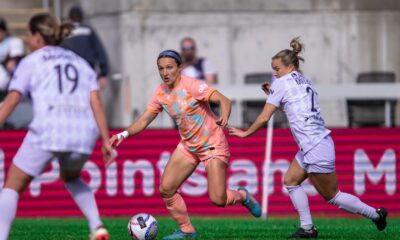
 Orlando Pride2 weeks ago
Orlando Pride2 weeks agoOrlando Pride vs. Racing Louisville FC: Preview, How to Watch, TV Info, Live Stream, Lineups, Match Thread, and More
-
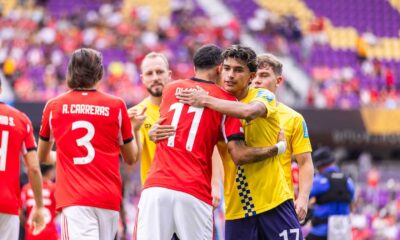
 Local Soccer Events2 weeks ago
Local Soccer Events2 weeks agoSL Benfica vs. Auckland City FC: Final Score 6-0 as Benfica Wears Down New Zealanders
-
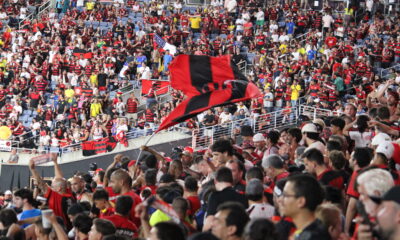
 Local Soccer Events1 week ago
Local Soccer Events1 week agoLAFC vs. Flamengo, 2025 FIFA Club World Cup: Final Score 1-1 as Teams Exchange Late Goals
-
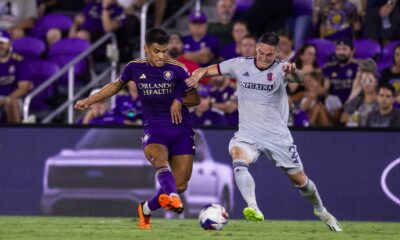
 Orlando City1 week ago
Orlando City1 week agoOrlando City vs. St. Louis City: Preview, How to Watch, TV Info, Live Stream, Lineups, Match Thread, and More
-
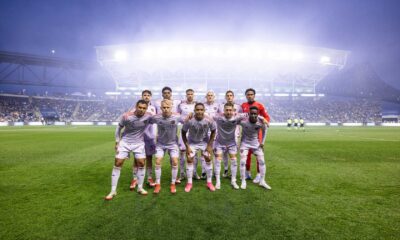
 Opinion2 weeks ago
Opinion2 weeks agoOrlando City Has Been Better than Expected Halfway Through the Season
-
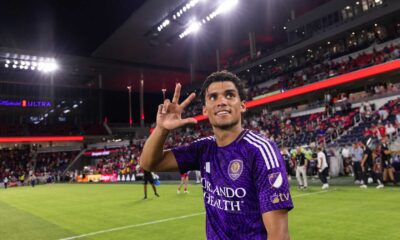
 Orlando City7 days ago
Orlando City7 days agoOrlando City vs. St. Louis City: Five Takeaways
-
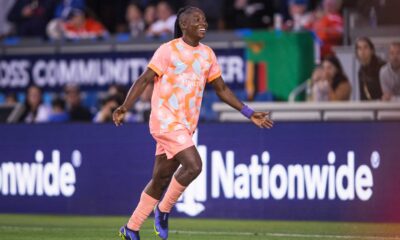
 Podcasts2 weeks ago
Podcasts2 weeks agoSkoPurp Soccer Episode 91: Bay FC Rewind, Racing Louisville Preview, and More
-
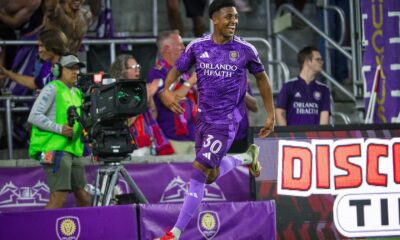
 Orlando City1 week ago
Orlando City1 week agoOrlando City Fullback Alex Freeman Selected to Participate in 2025 MLS All-Star Game


